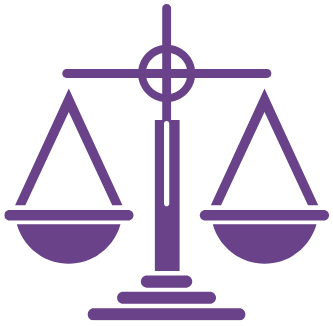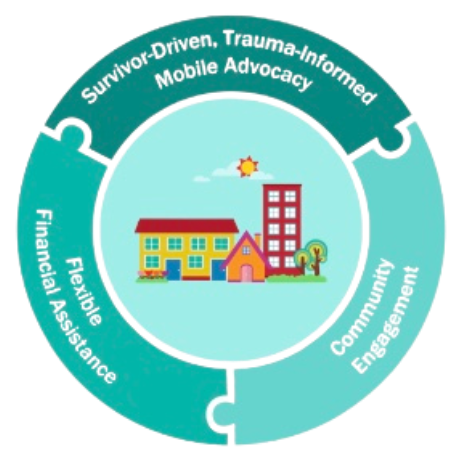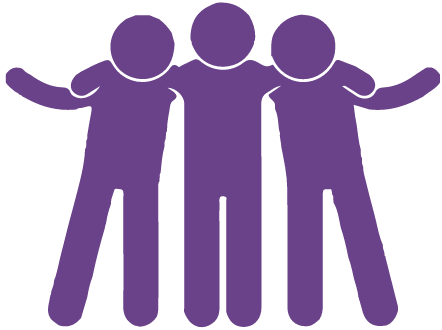you are not alone
We provide life changing services to victim/survivors of domestic violence, sexual violence, elder abuse, stalking, human trafficking and child abuse. Services are available to everyone, regardless of age, gender, race, religion, sexual orientation, income or physical abilities. Advocates can be reached 24 hours a day, 7 days a week to provide free and confidential services.
*Chat & Text Hotline available weekdays from 8:30AM-4:30PM EST
Serving the Merrimack New Hampshire County

HOSPITAL ACCOMPANIMENT

24-HOUR HOTLINE

COURT ADVOCACY
HOTLINE
24/7 HOTLINE:
866-841-6229 TTY & language line interpretive services available.
The Crisis Center of Central New Hampshire operates a 24-hour hotline that serves survivors, their families and friends. Hotline advocates provide emotional support, personalized safety planning and information regarding much needed services.
CCCNH’s hotline can be accessed by calling 866-841-6229, 24-hours a day, 7 days a week, including holidays. Calls to the hotline will be answered quickly by a trauma informed advocate.
TEXT WITH AN ADVOCATE:
Text 603-606-9766 to message with an advocate. Available weekdays from 8:30AM-4:30PM EST.
CHAT WITH AN ADVOCATE:
Click here to chat with one of our advocates using Resource Connect. Available weekdays from 8:30AM-4:30PM EST.
Court AdvocaCy
Provides a specialized advocate to assist victims of domestic and sexual violence as they proceed through the criminal justice system.
Crisis Center advocates are available to support clients who may be going through criminal or civil justice processes. We are able to answer questions, provide support and get survivors connected to legal services for their divorce, family case, or restraining order hearing. Some of the services available through CCCNH include:
We partner with 603 legal aid and New Hampshire Legal Assistance for legal services tailored to domestic violence survivors.
EDUCATION & OUTREACH
A key part of our mission is coordinating a sustained effort to reduce domestic violence through education and outreach.
Tailored presentations related to domestic violence, sexual violence and human trafficking are available. Our offerings include, but are not limited to, presentations on the following topics:
- Sexual Harassment
- Teen Healthy Relationships & Dating Violence Prevention
- Domestic Violence
- Sexual Violence
- Human Trafficking
CCCNH can tailor presentations to meet your needs. Below is an example of a presentation we recently presented to a local organization:
Child Abuse & Neglect for Professionals Working with Children
No one who works with children wants to even think about the children they work with being abused and/or neglected at home. Unfortunately, the reality is that 1 in 7 children have experienced abuse and/or neglect in the past year in the United States, according to the CDC. The Crisis Center of Central New Hampshire (CCCNH)’s Child Abuse & Neglect for Professionals Working with Children training is designed with the goal of collaboratively identifying simple and realistic strategies to help recognize, report, and prevent child abuse/neglect.
By the end of the training, participants should be able to:
- Define child abuse, neglect, & grooming;
- List the different types of child abuse/neglect;
- Demonstrate an understanding of the short & long term effects of Adverse Childhood Experiences;
- Recognize red flags of abuse/neglect in children of varying ages; &
- Make reports of future concerns to the appropriate authorities.
To request a presentation, please fill out the form. We will be in touch with you about scheduling your presentation.
Support groups
CCCNH runs an ongoing 10-week, virtual support group session available to survivors of domestic and/or sexual violence who are working on healing from trauma. Participants must be 18 years of age or older at the time of the group session (regardless of when the abuse took place). The support groups are advocate-led, peer groups that offer a safe environment for survivors to talk about their experiences and healing journeys with the support of others with similar experiences. Groups offer education, activities, and practice around topics including, but not limited to understanding, recognizing, and coping with triggers; the effects of trauma; setting and maintaining healthy boundaries; healthy interpersonal relationship skills; and strategies for self-care.
*CCCNH Support is 100% voluntary. It is not a clinical support group. Screening is required for participation to ensure a safe and cohesive environment.
*Participants must be 18 years of age or older at the time of the session in order to join. Screening will not be based on factors such as gender, sexual orientation, disability status, immigration status, race/ethnicity, religious/political affiliation, HIV status, or national origin.
*To complete a screening, please call CCCNH’s hotline between 830am-430pm Mon-Fri.
Other groups:
On occasion, CCCHN is able to run other multi-week (not ongoing) support group sessions with the help of our Americorps and volunteer advocates. Some examples include:
- Expressive art groups
- Trauma-informed yoga groups
- Moving Ahead group
- Support and financial literacy education for survivors of financial abuse
- …and more!
*To inquire about participating in other groups that may have upcoming sessions, please call CCCNH’s hotline between 830am-430pm Mon-Fri.
*To inquire about partnering with CCCNH to facilitate a new group and/or volunteering as a support group facilitator, please call 603-225-7376 and speak with the Program Director.
emergency shelter
We can provide a safe place for victims and their children when they have nowhere else to go.
The Crisis Center of Central New Hampshire offers temporary, safe and supportive housing for victims of domestic abuse who are seeking safety from an abusive partner. Emergency shelter space is limited and we are often full. If you are seeking emergency shelter, please contact us at 866-841-6229..
HOUSING
A common barrier preventing our survivors from leaving their abuser is not having a safe place to go and the possibility of facing homelessness. Our goal as housing advocates is to assist in finding sustainable housing as soon as possible so survivors can be in a safe, stable environment where they are able to focus on other needs away from their abuser.
Housing First
- CCCNH’s Housing First Program aims to address the critical needs of survivors by being survivor-driven and trauma-informed. CCCNH housing advocates provide mobile advocacy support and can meet survivors in the community.
- Assist survivors obtain and maintain safe, affordable housing as quickly as possible. Once they are safely housed, survivors can focus on other needs.
- Flexible financial assistance.
- Community engagement to create partnerships with landlords, property management companies, and public housing authorities.
Rapid Re-Housing
- A Department of Housing and Urban Development (HUD) funded program.
- Provides rental assistance and case management for up to two years.
Are you a landlord or property manager interested in helping your community? Please reach out to housing@cccnh.org or call us at 866-841-6229.

(https://www.nhcadsv.org/housing.html)
Works Cited: New Hampshire Coalition Against Domestic and Sexual Violence (NHCADSV). Housing & Economic Justice. NHCADSV. Retrieved from https://www.nhcadsv.org/housing.html
HOSPITAL ACCOMPANIMENT
Trained advocates respond to area hospital emergency rooms to provide support to individuals who have experienced sexual and domestic violence.
The Crisis Center of Central NH is committed to serving all survivors of domestic and sexual violence who seek emergency medical services. We partner will all of the hospitals in Merrimack County (Concord Hospital, Concord Hospital at Franklin and New London Hospital) to provide advocacy services 24 hours a day.
Immediately following an assault, you may be facing many medical, legal and emotional questions. An Advocate from CCCNH can:
- Provide you with some basic information and support to help you make the most informed choices for your situation
- Advocate on your behalf with hospital staff and law enforcement
- Provide support for your friends and family members and help them understand how to best support you
- Continue to provide ongoing support through court advocacy, support groups or helping you get connected to other important services
All of our advocates are trained to understand the emergency room experience and can provide as little or as much service as you need or desire.
HELPFUL INFORMATION
Child Abuse
CHILD ABUSE IS MORE THAN JUST BRUISES AND BROKEN BONES…
While physical abuse is most obvious, children are often suffering from many other types of abuse.
SEXUAL ABUSE
Any sexual act between an adult and a child. This includes any physical acts like fondling, penetration, oral sex and also includes forcing children to watch sexual acts.
EMOTIONAL ABUSE
Any attitude or behavior which interferes with a child’s mental health or social development. This includes yelling, screaming, name-calling, shaming, negative comparisons to others, constantly telling them they are “bad” , “useless” or “a mistake.” It also includes the failure to provide affection and support necessary for the development of a child’s emotional, social, physical and intellectual well-being. This includes ignoring, lack of appropriate physical affection (hugs), withdrawal of attention, lack of praise and lack of positive reinforcement. While emotional abuse may not seem as harmful as physical or sexual abuse, it can often leave long lasting scars.
NEGLECT
Neglect has many facets. It includes failing to provide for a child’s physical needs. This includes lack of supervision, inappropriate housing or shelter, inadequate provision of food and water, inappropriate clothing for season or weather, abandonment, denial of medical care and inadequate hygiene.
If a child discloses ANY abuse to you
It is important to know that ANY PERSON in the state of New Hampshire who reasonably suspects child abuse is mandated to report that abuse. You should call the central intake number for DCYF (800-894-5533) when you believe that the child is disclosing abuse. If the child would like to talk with you about what happened, here are some important things to remember.
- It is most important that you LISTEN to what the child is telling you.
- DO NOT investigate the child’s claims
- DO NOT ask leading questions
- DO NOT make any promises to child about what might happen
- DO NOT notify the person the child is accusing, even if it is a parent or caregiver
INSTEAD…
- Provide a safe environment where the child feels like they can talk
- Be a good listener
- Tell the child it was not their fault
- Be supportive
- Know your own limits
- Tell the truth
- Call DCYF as soon as possible
ALL people in NH are MANDATED REPORTERS OF CHILD ABUSE.
If you have any questions contact the CCCNH office: 225-7276 or hotline: 1-866-841-6229; Merrimack Child Advocacy Center: 228-0529; or Division of Children, Youth, and Families (DCYF): 1-800-894-5533
NH RSA 631:1 States that Knowingly or Recklessly causing harm to a child under the age of 13 is considered a Class-A Felony.
Domestic Violence
WHAT IS DOMESTIC VIOLENCE?
Domestic violence is a pattern of coercive behavior used by one person to gain power and control over another. A batterer can use many tactics in order to maintain control such as physical violence, sexual violence, stalking, verbal, emotional, mental/psychological, and economic abuse. Domestic violence is a crime that affects people of all socioeconomic backgrounds and education levels. It is found in both opposite-sex and same-sex relationships and can happen to intimate partners who are married, living together, or dating. Abusive behavior is not caused by an anger management issue, rather, abuse is a choice by the batterer. There is no excuse for any form of abuse and the victim is never to blame.
In New Hampshire it is estimated that 33.4% of women, and 24% of men have experienced a physical assault by an intimate partner. (Sources: 2007 NH Violence Against Women Report, 2009 NH Violence Against Men Report)
Physical violence is only a small part of the abuse. Emotional and psychological abuse can be equally as devastating. Many times the victim blames themselves for the abuse and believes they can end the violence if they change. This is a common form of manipulation and a tactic that leaves no visible marks. The victim begins to lose self respect and self worth, making them extremely vulnerable to the abusers controlling behavior.
There are numerous complex reasons why individuals stay with abusive partners: fear for personal safety, or the safety of their children or pets, economic pressures, feelings of helplessness, lack of resources, compassion for the perpetrator, coercion by family, and religious and cultural beliefs. It is important for everyone to know that leaving a relationship is often the most dangerous time for a victim.
Abuse is rarely ever a one time incident, it is continuous and often referred to as the “cycle of violence”. It often begins subtly and will escalate in frequency and severity over time. There are usually three stages that occur in the “cycle of violence”. Every stage lasts a different amount of time depending on each situation and the individual relationship.
Typically the stages are:
Tension Building Stage: Walking on eggshells, criticism, yelling, swearing, using angry gestures, coercion, threats, blaming
Abuse Stage: Any form of abuse such as physical and sexual attacks, threats, and intimidation
Honeymoon Stage: Apologies, promises to change, gifts, blames abuse on victim, minimize or denies abuse
What are my options?
If you find yourself in an abusive relationship there is help and options are available to you. Remember if you are ever in immediate danger, call 9-1-1.
You do not have to do this alone. Get connected to the crisis center nearest you by calling the statewide toll-free domestic violence hotline at 866-644-3574. Trained advocates are ready to answer your questions, offer support, and safety plan with you. All services are free and confidential.
Elder Abuse
WHAT IS ELDER ABUSE?
- Elder Abuse can be Physical, Psychological, Emotional, Sexual, and Financial.
- It can be a single or repeated act, or lack of action. Occurring within ANY relationship where there is an expectation of trust which causes harm of distress.
WHO IS AN “ELDER?”
- Technically 60-years-old and up. For most service providers 50-years-old and up.
- 67% are women, 33% are men.
- Law includes the Elderly AND incapacitated adults.
- 18-years-old and up; physically, mentally, or emotionally unable to manage their own personal, home, or financial affairs.
WHO ABUSES?
- Trusted care givers with some expectation of trust.
- Spouses, partners, family members, care givers, etc.
- Often have co-occurring issues: anger, substance abuse, health issues, stress.
These ARE NOT reasons or excuses for the abuser. These are issues that magnify the underlying problem: the abuser likes to abuse.
Abusers use common tactics such as: emotional, psychological, or spiritual abuse; isolation; neglect; manipulating family; threats; financial exploitation; sexual or physical abuse.
Our goal (and the goal of all who work with the abused elderly) is to treat them with dignity and respect. Even though volunteers may be younger they will treat you with the same dignity and respect as a peer would. We are here to help you understand what has happened or is happening, give you all the information you may need, support you as you work to process what has happened, and most importantly to LISTEN.
As with other types of abuse there are potential Red Flags that you loved one or friend is being abused.
Healthy Relationships
There are many ways to define a healthy relationship. What we believe is that healthy relationships have some key components that should be considered:
Healthy relationships should have open and honest communication.It’s important to know that you and your partner can communicate about anything in a safe and respectful way. Both of you should be able to talk about what’s bothering you, be able to resolve conflicts without fear, and know that your feelings are being respected.
Healthy relationships should also have good boundaries. You should be able to maintain friendships outside of your relationship, spend time with friends and family and keep doing things that you enjoy. You shouldn’t be required to share your social media passwords, phone password or check in with your partner frequently.
If you want to learn more about healthy relationships, call us at 866-841-6229
Red Flags
For You:
- Feeling afraid of your partner
- Feeling you don’t do anything right
- Feeling embarrassed by your partner’s behavior
- Believe that you deserve what you’re getting
- Avoid topics out of fear of your partner
- Feeling tied down
- Feeling if you love your partner enough the relationship will get better
- Crying a lot, depressed, unhappy
Does Your Partner:
- Humiliate, criticize or yell at you or others
- Blame you for their behavior
- Threaten or harm you, your kids or pets
- Force you to have sex
- Act jealous and possessive
- Keep you from seeing friends and/or family
- Limit your ability to get a job, go to school, access money or necessities
- Constantly check on you: call, text, etc.
- Threaten to kill themselves if you leave
- Abuse alcohol or other drugs
- History of trouble with the law, fights, breaking/destroying property
- Abuses other family members: parents, siblings, pets, etc.
- Cheats or has lots of other partners
- Accuses you of flirting with others
- Ignores you when you’re expressing your feelings, beliefs, or needs
- Tells you how to dress/act
Red flags to look for from a friend:
- Frequent injuries from accidents, in odd places, or injuries they can’t explain
- Suddenly misses work, school, or cancels plans
- Receives frequent phone calls from their partner
- Fear their partner, refer to partner’s behavior
- Lacks assertiveness or is very submissive
- Isolated, hard to contact, doesn’t contact you, other friend, or family
- Insufficient resources: money, credit cards, transportation, etc.
- Their partner calls your friend names and puts them down in front of others
- Partner acts jealous when your friend talks to members of the opposite sex
- You’ve seen their partner lose their temper or get violent when they are with others
- Is always worried about their partner
- Giving up things that used to be important to them
- Weight, appearance, grades, etc changed dramatically
- Changes in daily rituals
- Stopped hobbies
- Excessive amount of time in contact or with their partner
*Information from Red Flag Campaign; Safe Place
Sexual Abuse Abuser:
- Extremely over protective
- Overly interested in the Child’s social or sexual life
- Acts jealous of the child
- Refers to the child in sexual ways
- Unusual interest in the child or children in general
- Has child-friendly toys, books, movies, etc, but has no children
- Systematic and prolonged access to children
- Finds a way to legitimize contact with children
- Befriends children’s parents to gain access Children:
- Preoccupied with sex play
- Sexually acts out toward other children, exposes genitals frequently
- Unusual amount of masturbation
- Unusual sexual behavior with inanimate objects, mimicking with dolls or toys
- Withdrawn
- Extreme changes in grades: A-Student to C,D,F Low-grade student to A’s and B’s
- Aggression
- Bed Wetting
- Terror, phobias, unusual fears
- Changes in appetite
Elder Abuse Physical/Personal signs:
- Bruises, welts, cuts, scalp soreness, burns, bed sores
- Injuries not in locations normally associated with a fall inside of limbs, throat, buttocks
- Symptoms of over or under medication
- Sprains, dislocation, bone injuries
- Broken or missing eyeglasses, false teeth, hearing aids, etc.
- Withdrawal
- Looks to a caregiver before answering, doesn’t speak in their presence
- Isolated
- Self-blame
- Provides implausible or inconsistent explanations – Fear
Environmental/Financial signs:
- Strong odor of urine/feces
- Lack of utilities
- Spoiled food
- Uncared for pets
- Rodent or insect infestation
- Unexplained or sudden inability to pay bills, money withdrawals
- Disparity between assets and living conditions
- Extraordinary interest by caregiver (family member) in their assets.
Safety Planning
A safety plan is a personalized plan that an advocate can create with you to help you stay safe while you are in a relationship, or planning to leave a relationship. A safety plan can include things like how to talk to family and friends about the abuse, how to get safe when physical danger is imminent, or even just list emergency phone numbers for relatives
It’s important to know that your safety plan may change everyday, and there isn’t one plan that works for everyone. Each individual knows their situation best and your safety plan should reflect that. And while some things in your safety plan may seem trivial or obvious, it is important to know that when you are in a traumatic situation, you may not be able to recall even the most obvious things. It’s important to keep your written safety plan with you to help guide your decision making in the most stressful situations.
Sexual Assault
WHAT IS SEXUAL ASSAULT?
Sexual assault is non-consensual sexual contact or penetration by physical force, by threat of bodily harm or when the victim is incapable of giving consent by virtue of mental illness, mental disability, intoxication or being under the age of consent (16-years- old in New Hampshire). While sexual assault can take many different forms, the loss of power and control that a victim experiences is a common thread.
Myths about sexual assault reflect social, cultural, racial, and/or gender-based stereotypes. These myths affect victim/survivors of sexual violence and perpetuate the silencing of this crime.
Sexual Assault is a crime of power and control.
A person is more likely to be harmed by someone in his or her circle of friends and family. Perpetrators of sexual violence are almost always someone the victim knows. In New Hampshire 87% of females and 77% of males, knew their perpetrator (2006 Sexual Assault in New Hampshire Report). A majority of assaults can be categorized as acquaintance or intimate partner assault. These types of assault are ones in which the victim and perpetrator are known to each other. Intimate partner sexual assault exists whenever sexual violence is present between married partners, unmarried partners, people in dating relationships, people of all genders and sexual orientations, and teens (Winters, 2008). Acquaintance assault exists when sexual violence is present between those that know each other but are not involved in the previously mentioned relationship. These two types of assaults account for the majority of all sexual assaults
Remember…
- There is no single “right” response for survivors of sexual violence
- Sexual assault can be a life-threatening situation and whatever you did to survive was the right thing to do.
- Sexual assault can happen to anyone
- Sexual violence is NEVER the victim’s fault
- No one deserves to be assaulted
Stalking
WHAT IS STALKING?
When a person purposefully, knowingly or recklessly engages in conduct that would cause a reasonable person to fear for their safety or the safety of their family. Stalking is serious, often violent and can escalate over time. It is important to understand that a person does not need to have had a personal relationship with someone in order to become a victim of stalking.
Stalkers can:
- Follow you and show up in the places you are.
- Send you unwanted gifts, letters, texts and emails.
- Threaten to harm you, your family and even your pets.
- Damage your property like your car, or home.
- Try to get information about you from friends, family members or co-workers.
- Follow or track you using technology
- Monitor your cell phone or computer usage
- Post rumors about you on social media to try and engage you.
- Any other action that places you in fear, or shows that a stalker is trying to control you.
Stalking Victimization…
- 6.6 million people are stalked each year in the United States
- 3 in 4 stalking victims are stalked by someone they know
- 66% of female victims and 41% of male victims are stalked by a CURRENT or FORMER intimate partner
- People aged 18-24 experience the highest rate of stalking
Impacts of Stalking…
- Stalking victims can feel fear about what the stalker may do next.
- They can feel vulnerable and not know who to trust.
- They can face sleeplessness, anxiety, loss of appetite, depression and irritability.
- They can feel hopeless.
If you are a victim of stalking, get connected to an advocate at the Crisis Center of Central New Hampshire. We can assist you with safety planning, navigating the court process and assist in getting you connected to legal services. We can also offer support in those times when you feel like you have no place else to turn.



